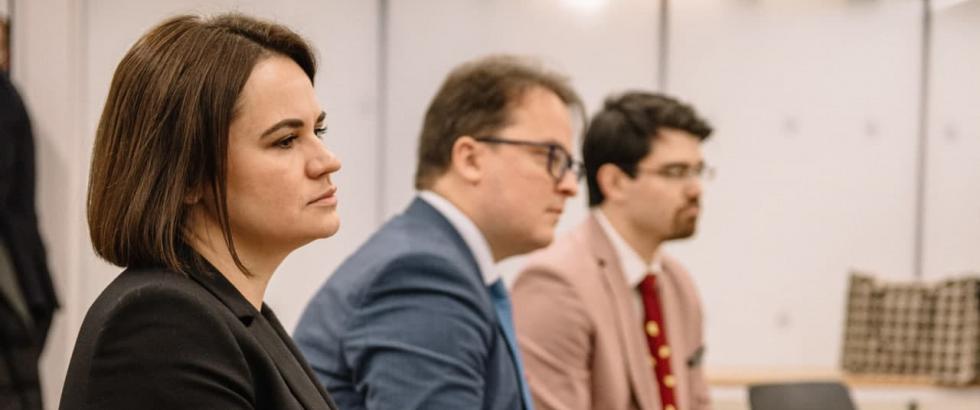Civil society and democratic forces concentrate on the international agenda; political parties develop online communication channels
 The situation has not changed
The situation has not changed

Democratic forces maintain regular communication with Western leaders and promote the civil society agenda of isolation and sanctions against the Lukashenka regime. Political organisations and platforms cultivate contact with sympathisers online.
The Leader of democratic Belarus, Sviatlana Tsikhanouskaya, meets with international politicians at the Munich Security Conference, trying to draw attention to Belarus and promote the agenda of civil society, namely: sanctions and support for independent media, human rights activists, and victims of political repression.
Democrats and diasporas are expanding their influence in Western capitals and international financial institutions. The head of the IMF, K. Georgieva, assured Tsikhanouskaya that the IMF does not plan to allocate money to the Lukashenka regime.
In Sweden, all parliamentary parties adopted a joint position on the illegitimacy of the Belarusian constitutional referendum and the isolation of the Lukashenka regime.
Representatives of the National Anti-Crisis Management met with the ambassadors of Spain and Romania to promote the agenda of isolation, the illegitimacy of the referendum, sanctions, and support for civil society and youth.
A debate is raging in civil society and the expert community future strategy in light of activist fatigue due to the protracted confrontation with the Lukashenka regime.
The expert community is trying to agree on recommendations for rebuilding civil society and independent media in Belarus. The Centre for New Ideas is organising a conference involving a broad spectrum of Belarusian analysts.
Despite the attempts of independent media editors to construct infrastructure abroad, they are unable to restore previous audience numbers. The significance of Russian and international media organisations is increasing.
Democratic forces mobilisation plan for the referendum is becoming side-lined as audience attention is diverted towards international issues and sanctions.
Abrogation of the rule of law and repressions deepen fractures in society and the positions of regime opponents. Cyber Partisans continue to undermine the infrastructure of repression by publishing the personal data of 475 KGB officers.
Some unregistered political organisations use online tools to communicate with supporters. “Our Party” holds “Zoom” conferences regarding current affairs. “Together” organises online meetings of supporters. Schod is also attempting to resume activity.
Registered parties are minimising public activity to avoid intensified repression in the run-up to the referendum.
Therefore, political organisations are only mobilising a subset of supporters of change for the February 27th referendum. It is doubtful that the events of the 2020 presidential election with queues at polling stations will be repeated.
Subscribe to our newsletter




Situation in Belarus
Constitutional referendum: main consequences


 Video
Video
How to count the political prisoners: are the new criteria needed?


 Video
Video
Paternalism In Decline, Belarusian Euroscepticism, And The Influence Of Russia


 Video
Video












